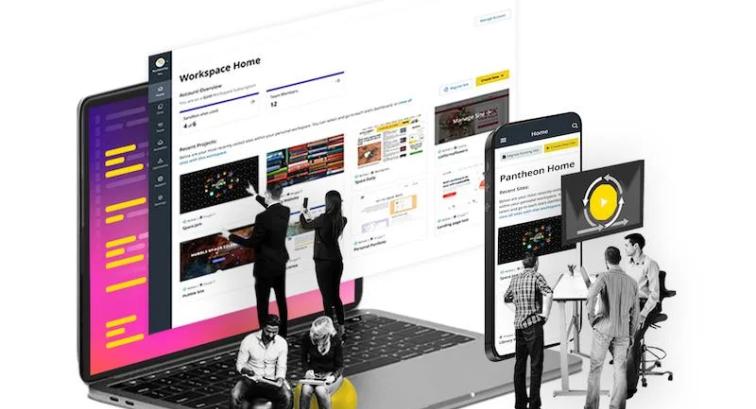Josh Koenig , Co-Founder & Chief Strategy Officer Reading estimate: 4 minutes
Elevating Your Agency, Part Three: From CMS Jocks to Full-Stack Digital
Welcome back to my ongoing blog series on ways to elevate your business model as a digital agency! We’ve already talked about moving up the value chain on the client side for more impact and leaning into digital product development and maybe even transitioning to a recurring revenue model. Today I want to talk about a third way that borrows some elements of both: broadening your practice to include CMS-adjacent tools and technologies and taking on the full martech stack.
Tech Still Counts: the Cutting Edge vs the Chef’s Expertise
If you want to lean into your technical acumen but don’t want to be constantly chasing the latest shiny object, a great path forward is to look for common patterns of integration between a CMS and other business systems: CRM, CDP, content personalization, marketing automation, etc. These are all complex technologies where expertise is constantly in demand, but it’s an area with proven winners (vs hype cycle riders). What’s more, a good implementation project should take you right into the heart of your clients’ business goals, setting the stage for higher-value conversations.
Image

Every website has a job to do, and in most cases that job goes beyond just delivering content. There’s another technology involved, commonly referred to as a “stack” by digital marketers. The MarTech conference even has an awards ceremony called “the Stackies” that celebrates the best in innovation. Becoming an expert in how stacks are composed and orchestrated — with the CMS as a lynchpin — is a great way to elevate commodity web development work.
It is also a way to bolster your pipeline by connecting with potential clients interested in a broader range of technologies. You could become associated with the best open source plugin, strike up joint business development with martech companies, market your own capabilities directly, or ideally find a mix of all of the above.
The key to maximizing your upside here is to lean into expertise, quality and understanding of the “why” of the integration(s). With all the choices out there in the MarTech 10,000, clients need an epicurean's sensibility to figure out the right choices to fit their objectives. Sometimes they’ll know one or more pieces of the puzzle — this is where domain expertise in the integration pays off — but almost always the picture will be incomplete. Your guidance on rounding things out is where you lock in a long-term value-added relationship.
Scaling With Stacks
In addition to giving you a path to raising your value in the eyes of clients, leaning into the martech stack expertise is also a way to think about driving scale in your business. Developing a reusable recipe for success can be a way to bring efficiency and reduced risk to the situation. It can even offer a path to more of a recurring/retainer revenue scenario.
Even if you’re not the shop that built the most popular open source integration for a popular piece of the martech stack, you can have a solid repeatable pattern for how to get clients to value quickly. Investing in a good demo can pay off in more ways than one: it’s not only a great way to attract attention, but the build-out can give you good boilerplate code to use when you land your next deal. It’s a good way to bootstrap.
In terms of the revenue model, new potential opens up by being attached to systems that are closer to business value for clients. Just like agencies that run their clients’ digital demand budgets often have retainer agreements, teams that help customers operate their martech effectively — analyzing, reporting, and optimizing — can make a strong case that a high-bandwidth, long-term engagement is in the client's best interest.
It doesn’t quite have the scale of (pseudo) SaaS from building a turnkey solution, but it can give you stability and profit above and beyond what you can typically find with the boom/bust build/maintenance cycle. It also has the opportunity to invest in efficiency and scale — since people are no longer paying for hours of labor, but rather outcomes or insights, your price is tied to the value of what you can deliver, not the time it takes your team to finish a deliverable.
Evolving Agencies for an Evolving Web
Everything I’ve been talking about here is part and parcel with the evolution of the web itself from a medium defined by content to one that’s inextricably a part of commerce. Not every client is going to run an e-shop, but almost every single one will be engaging their customers, constituents or community through this medium in some kind of meaningful process.
That’s the overall thesis of WebOps — that we need to think about the web as a channel for doing meaningful things and creating business value, and that doing this demands the ability to move quickly and continuously toward better. Whether that’s breakthrough innovation, relentless optimization, or responding to a new opportunity in real-time, the people who make this medium their own will outpace those who treat it like a digital representation of a tri-fold brochure.
In our next piece, I’ll talk about how you can transform the way you deliver value, and elevate in the eyes of your clients, just by making this case to them and structuring your engagements differently. Until then, have a great time making the internet!
Topics
Discover More
Touchstone Energy® Achieves WebOps Excellence to Better Serve Their Members
Yulia Popova
Reading estimate: 2 minutes
Elevating Your Agency, Part Four: Building a WebOps Practice
Josh Koenig
Reading estimate: 5 minutes
Discover Top Alternative to WordPress VIP for Enterprise Hosting
Steve Persch
Reading estimate: 9 minutes


